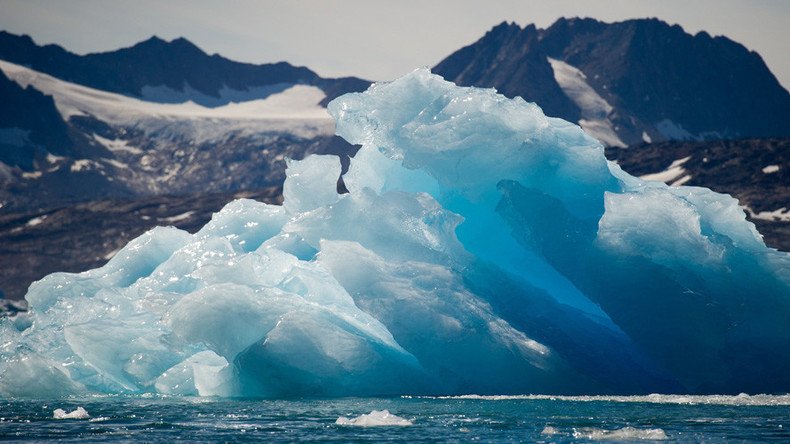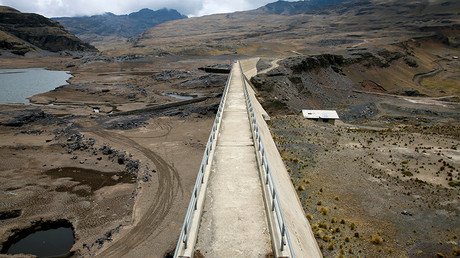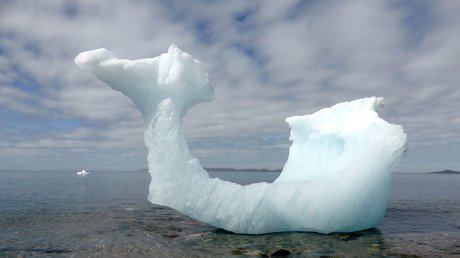‘Uncharted territory’: Drastic climate change in 2016 will continue this year – report

The impacts of global climate change made 2016 the warmest year on record, and signs point to a continuation of trends and further climate anomalies to come in 2017, the World Meteorological Organization (WMO) says.
Ahead of World Meteorological Day on March 23, the WMO, a United Nations agency, has released its annual report, 'State of the Global Climate', detailing significant weather and climate trends across the world.
Last year was the warmest on record, the WMO said, at 1.1C (33.98F) above the pre-industrial period and .06C above the record set in 2015.
Climate breaks multiple records in 2016, hottest year on record. Global impacts. Extreme and unusual trends continue in 2017 #stateofclimatepic.twitter.com/GvBTtVqiiP
— WMO | OMM (@WMO) March 20, 2017
Furthermore, global average sea surface temperatures hit an all-time high, as sea levels continue to rise and as Arctic sea-ice mass fell much below average for most of 2016, according to WMO Secretary-General Petteri Taalas.
"With levels of carbon dioxide in the atmosphere consistently breaking new records, the influence of human activities on the climate system has become more and more evident," Taalas said.
Each year since 2001 has been at least 0.4C higher than the long-term average for the period of 1961-1990, which is considered a base period of reference for global climate change science. The WMO said 2016 has continued warming trends that include a 0.1 to 0.2C increase per decade.
The 2015-2016 El Niño was consistent with past El Niño years and "played an important role in the year’s climate and confirmed that, when natural variability interacts with anthropogenic climate change, the impacts on human societies and the natural environment can be severe," the WMO said in the report.
El Niño helped push global sea levels to record highs in 2016, the WMO said, as global sea ice extent fell by more than 4 million sq km below average in November. The WMO called the latter development "an unprecedented anomaly for that month."
Warm ocean temperatures helped exacerbate coral bleaching and mortality in many tropical waters, causing deep impacts on marine life, the WMO said.
Noteworthy events of extreme weather in 2016 included severe droughts that devastated southern and eastern Africa; abnormally heavy rains and floods that hit eastern and southern Asia; and Hurricane Matthew, which caused "significant damage" to Haiti and the United States.
Extreme climate conditions will not abate in 2017, the WMO said.
"Even without a strong El Niño in 2017, we are seeing other remarkable changes across the planet that are challenging the limits of our understanding of the climate system. We are now in truly uncharted territory," said World Climate Research Programme Director David Carlson.
The Polar equivalent of a heatwave has occurred at least three times already in 2017, the WMO reported, with temperatures near ice-melting point. Antarctic sea ice has also reached record lows. These ice levels are causing major impacts to global oceanic and atmospheric weather patterns, the WMO said.
"In the USA alone, 11,743 warm temperature records were broken or tied in February, according to the US National Oceanic and Atmospheric Administration," the report says.
The report confirms the findings of similar analyses released by other top climate-gauging agencies, illustrating the grim year for the global climate that was 2016.
In January, the National Oceanic and Atmospheric Administration and NASA released a report stating that, for the third consecutive year, all-time highs for average global temperature were reached in 2016.
The WMO report said that implementation of the Paris Agreement on climate change, a pact in which the Donald Trump administration has said it will not remain, is crucial for slowing global climate change impacts.
"It is vital that its implementation becomes a reality and that the Agreement guides the global community in addressing climate change by curbing greenhouse gases, fostering climate resilience and mainstreaming climate adaptation into national development policies," the report states.















